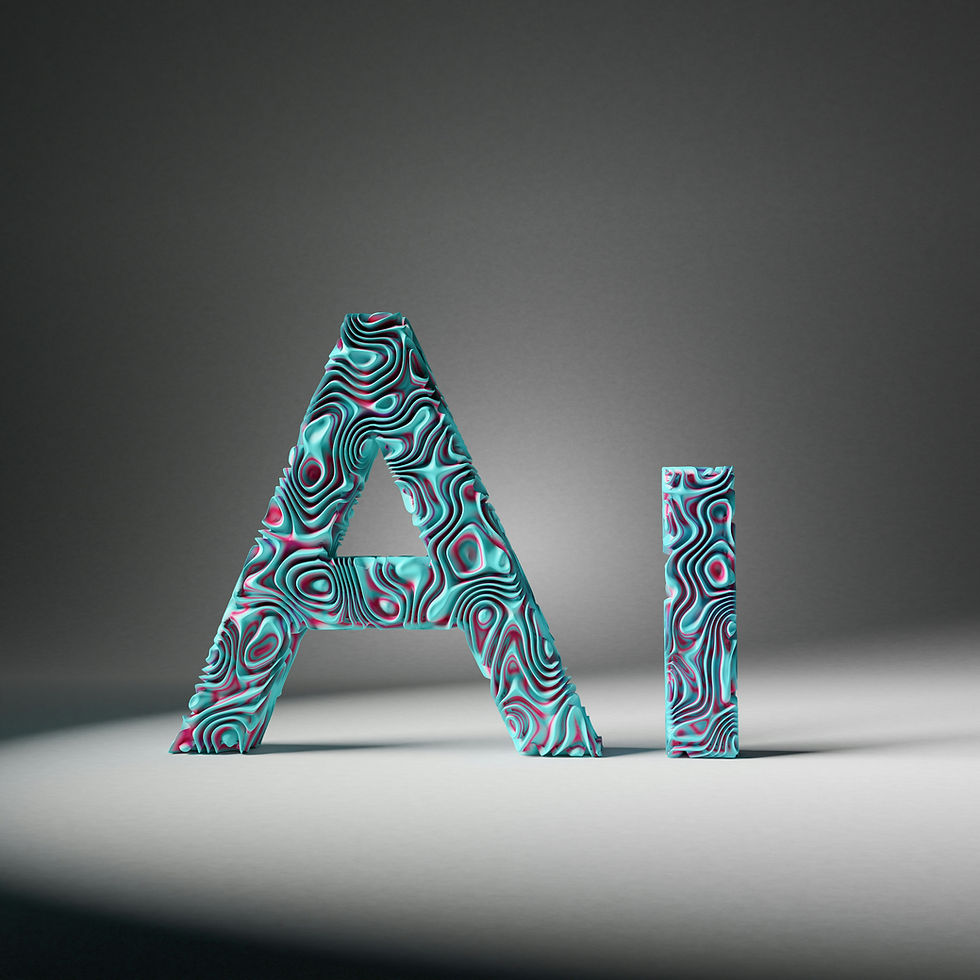Top AI News: Breakthroughs, Innovations, and Concerns Shaping the Future
- Nov 14, 2024
- 4 min read
Artificial Intelligence (AI) continues to dominate global headlines, with innovations ranging from cutting-edge research to real-world applications. Today’s top AI news today reflects not only the exciting potential of these technologies but also the ethical and societal questions they raise. In this article, we’ll explore some of the most important developments in the AI space today.

1. Generative AI: Revolutionising Content Creation
Generative AI continues to capture the imagination of industries ranging from entertainment to healthcare. Today, one of the most significant stories is the rapid evolution of AI tools that create art, music, text, and even video content. OpenAI's GPT models, including GPT-4, remain at the forefront of natural language processing. Meanwhile, companies like Adobe are unveiling tools powered by generative AI to assist creators, with their AI toolsets now capable of producing high-quality visual art, video editing, and even music composition.
One notable development is Adobe’s collaboration with artists to refine AI-driven creative tools, which aim to reduce time spent on technical tasks, freeing up more space for artistic innovation. AI is becoming a co-creator rather than just a tool for automation. However, this technology also raises questions about the future of creative professions and the potential for AI to displace traditional jobs in the arts and media industries.
2. AI in Healthcare: Accelerating Drug Discovery and Diagnostics
In the healthcare sector, AI's role is expanding rapidly. Researchers are now leveraging AI algorithms to accelerate drug discovery processes and enhance diagnostic accuracy. AI systems, such as those used by companies like DeepMind and IBM’s Watson Health, are making strides in identifying new drug compounds and offering precision medicine solutions. One key development today comes from a partnership between AI-driven drug discovery firms and major pharmaceutical companies to develop new treatments for diseases such as cancer and Alzheimer's.
AI is also revolutionizing diagnostics. AI algorithms are now capable of analyzing medical images, such as X-rays and MRIs, with remarkable accuracy. For instance, an AI system recently developed by Google Health was able to detect breast cancer more accurately than human radiologists, leading to earlier detection and better patient outcomes. However, while these technologies show immense promise, they also raise concerns about data privacy and the ethics of AI-driven healthcare decisions.
3. AI and Ethics: Calls for Regulation
As AI systems become increasingly embedded in everyday life, discussions about ethical frameworks and regulation have intensified. The rise of deepfakes, AI surveillance, and biased algorithms has highlighted the need for oversight to ensure that AI technologies are developed and deployed responsibly.
The European Union (EU) is leading the charge with its proposed AI Act, which seeks to regulate AI based on risk levels. The act classifies AI systems into categories such as "high-risk" and "low-risk," with corresponding regulatory frameworks. This approach has sparked debates among policymakers and tech companies, with some advocating for more stringent regulations, while others warn that excessive regulation could stifle innovation.
One area of particular concern is the use of AI in autonomous weaponry. A growing coalition of international organizations and advocates is calling for a ban on AI-powered weapons that could make life-or-death decisions without human intervention. While AI is being increasingly used in defence, the fear is those fully autonomous systems could lead to unintended consequences, especially in conflict zones.
4. AI and the Job Market: Balancing Automation with Employment
As AI technologies continue to evolve, they raise important questions about the future of work. Today, AI is already automating routine tasks in sectors such as manufacturing, logistics, and customer service. While automation can increase efficiency, it also threatens millions of jobs, especially for low- and medium-skilled workers.
In response, governments and organizations are pushing for reskilling initiatives that will help workers transition into new roles in industries such as AI development, cybersecurity, and renewable energy. Some are calling for universal basic income (UBI) as a way to provide financial security to those displaced by AI, while others argue that education and training in high-demand fields will be the key to mitigating job losses.
5. AI in Climate Change: Tackling the Global Crisis
AI is also being leveraged to combat climate change. Recent breakthroughs in AI algorithms have made it possible to analyze large datasets more efficiently, enabling faster predictions of climate patterns and natural disasters. AI is being used in energy systems to optimize the distribution of renewable energy, improving efficiency and reducing waste. Moreover, AI can help identify sustainable practices and innovations in agriculture, which could potentially reduce the carbon footprint of food production.
For instance, AI-driven tools are being deployed to optimise irrigation in drought-prone areas, helping farmers conserve water while boosting crop yields. Another exciting development is AI's role in creating carbon capture technologies, which can remove CO2 from the atmosphere. Despite these advancements, environmentalists warn that AI alone cannot solve the climate crisis and that it must be part of a broader, multifaceted approach.
AI is undoubtedly one of the most transformative technologies of our time. From generative tools that enable creative breakthroughs to advanced healthcare applications that improve patient outcomes, AI is reshaping industries at an unprecedented pace. However, with its rapid development comes an urgent need for ethical consideration and regulation to mitigate risks such as job displacement, privacy concerns, and misuse of technology. As AI continues to evolve, the balance between innovation and responsibility will be critical in shaping a future where these technologies can benefit society as a whole.







Comments